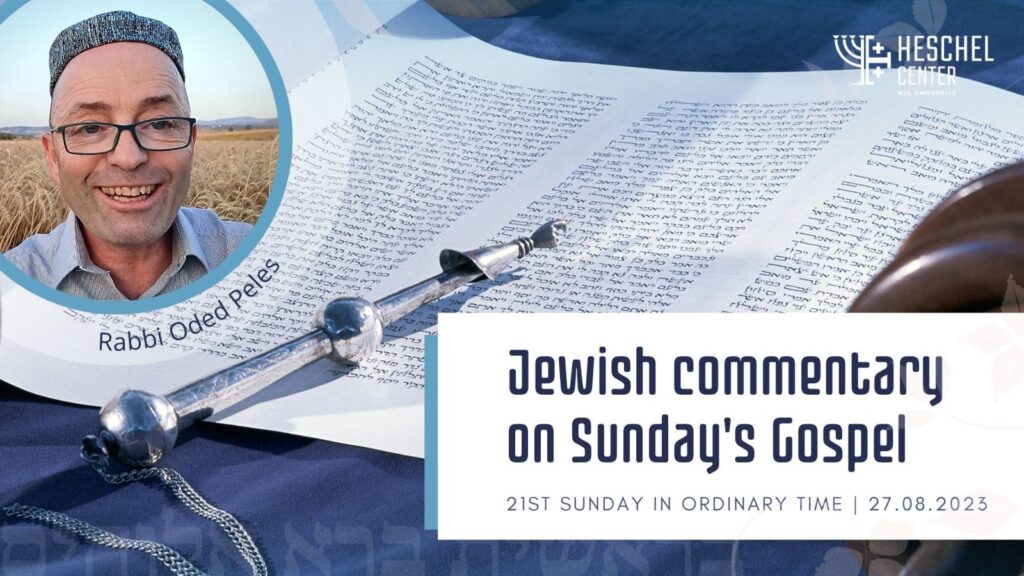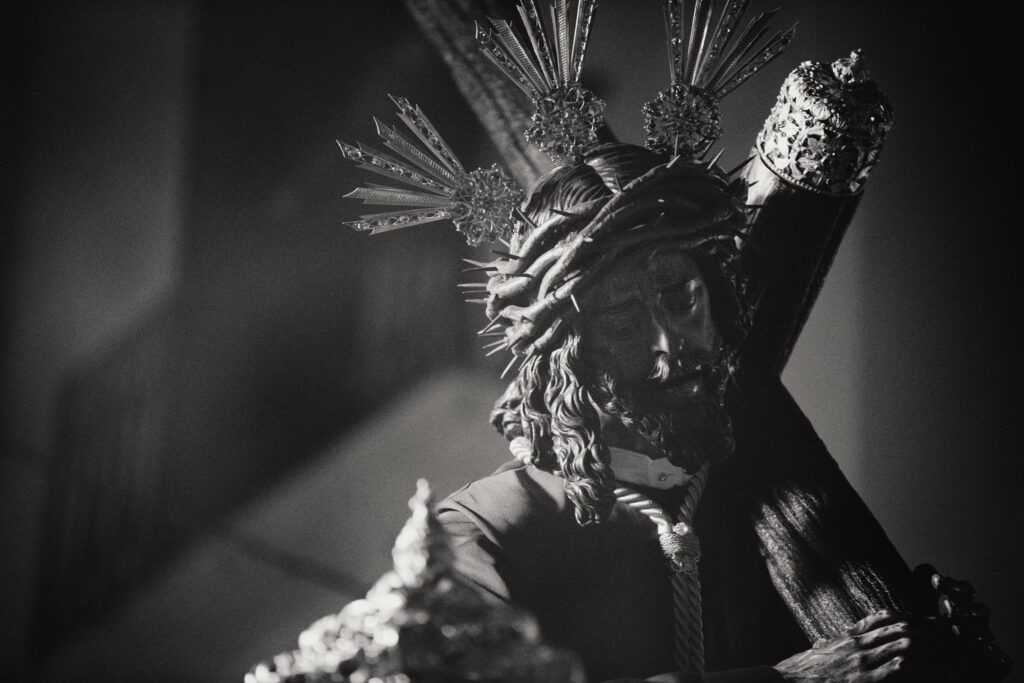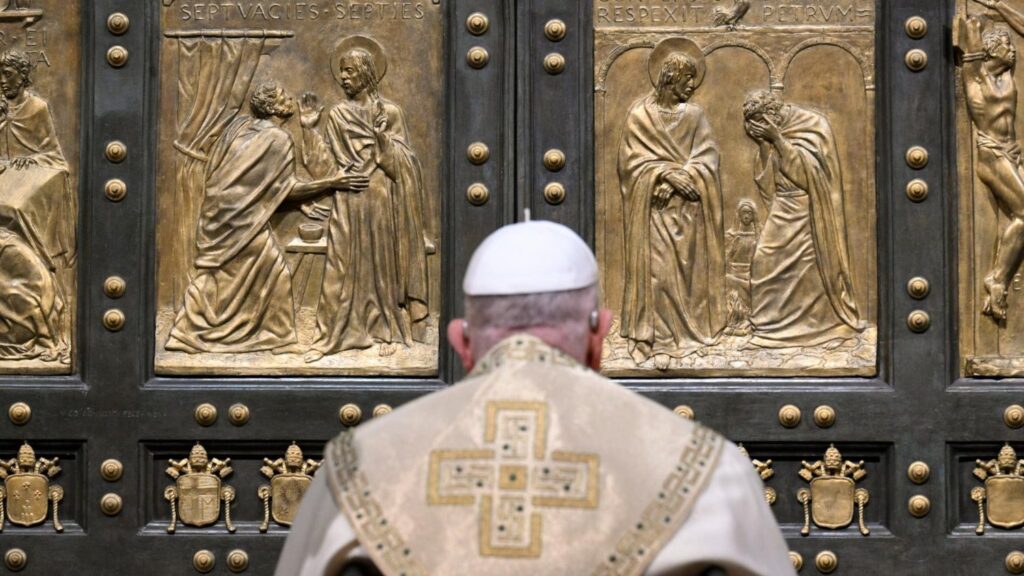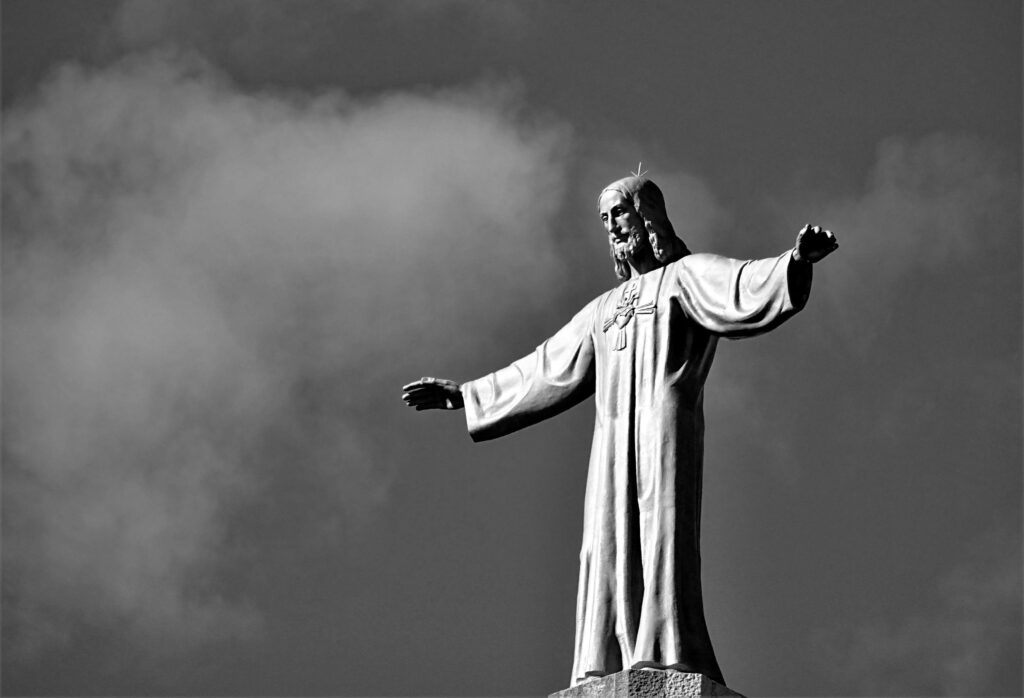Ties bound on earth and in heaven
Ties between God and His people are the focus of the ongoing Jewish month of Elul. It is a time of renewing relationships with God and His special presence. To establish a bond with heaven, however, one must first mend ties with one’s neighbors, writes Rabbi Oded Peles, a Jewish cantor, and Israeli educator who […]

Ties between God and His people are the focus of the ongoing Jewish month of Elul. It is a time of renewing relationships with God and His special presence. To establish a bond with heaven, however, one must first mend ties with one’s neighbors, writes Rabbi Oded Peles, a Jewish cantor, and Israeli educator who looks at the words of the Gospel of Sunday, August 27, from the perspective of Jewish faith and tradition, in a commentary for Heschel Center of the Catholic University of Lublin.
Commenting on Jesus’ words from the Gospel of Matthew,” Whatever you bind on earth shall be bound in heaven, and whatever you loose on earth shall be loosed in heaven” (Matthew 18:18), Rabbi Peles relates them to the ongoing Jewish month of Elul, whose central theme is precisely the relationship and bond between heaven and earth.
This final month in the Jewish calendar is a time of mercy and forgiveness. Preceding the major Jewish holidays – Rosh ha-Shanah (the Jewish New Year) and Yom Kippur (the Day of Atonement) – the month of Elul is a unique opportunity to draw closer to God and to strengthen a loving relationship with Him. “It is no coincidence that Elul derives from the Song of Songs,” Rabbi Peles emphasizes, “an allegorical dialogue between the beloved and the beloved, a parable about God’s relationship with His people.”
As Oded Peles points out, the relationship with God, citing teachings from the Mishnah, depends on the relationship with people. “To establish a relationship with heaven, one must first repair the relationship with one’s neighbors,” stresses the Israeli rabbi, “The gates of heaven are wide open to our souls, and prayers are most effective when we make peace here on earth. Whatever we bind on earth will be bound in heaven, and whatever we untie on earth will be unbound in heaven (cf. Matt. 18:18).
A full text of the commentary on the Heschel Center of the Catholic University of Lublin website:
https://heschel.kul.pl/ties-bound-on-earth-and-in-heaven,art_103809.html
Related

Christian Hope
Luis Herrera Campo
15 April, 2025
3 min

How to gain a plenary indulgence during the Jubilee Year?
P Angel Espinosa de los Monteros
14 April, 2025
3 min

The Christian Sacrifice
Luis Herrera Campo
14 April, 2025
4 min

A Prodigious Mind: Thomas Aquinas
Jesús Ortiz López
14 April, 2025
6 min
 (EN)
(EN)
 (ES)
(ES)
 (IT)
(IT)

